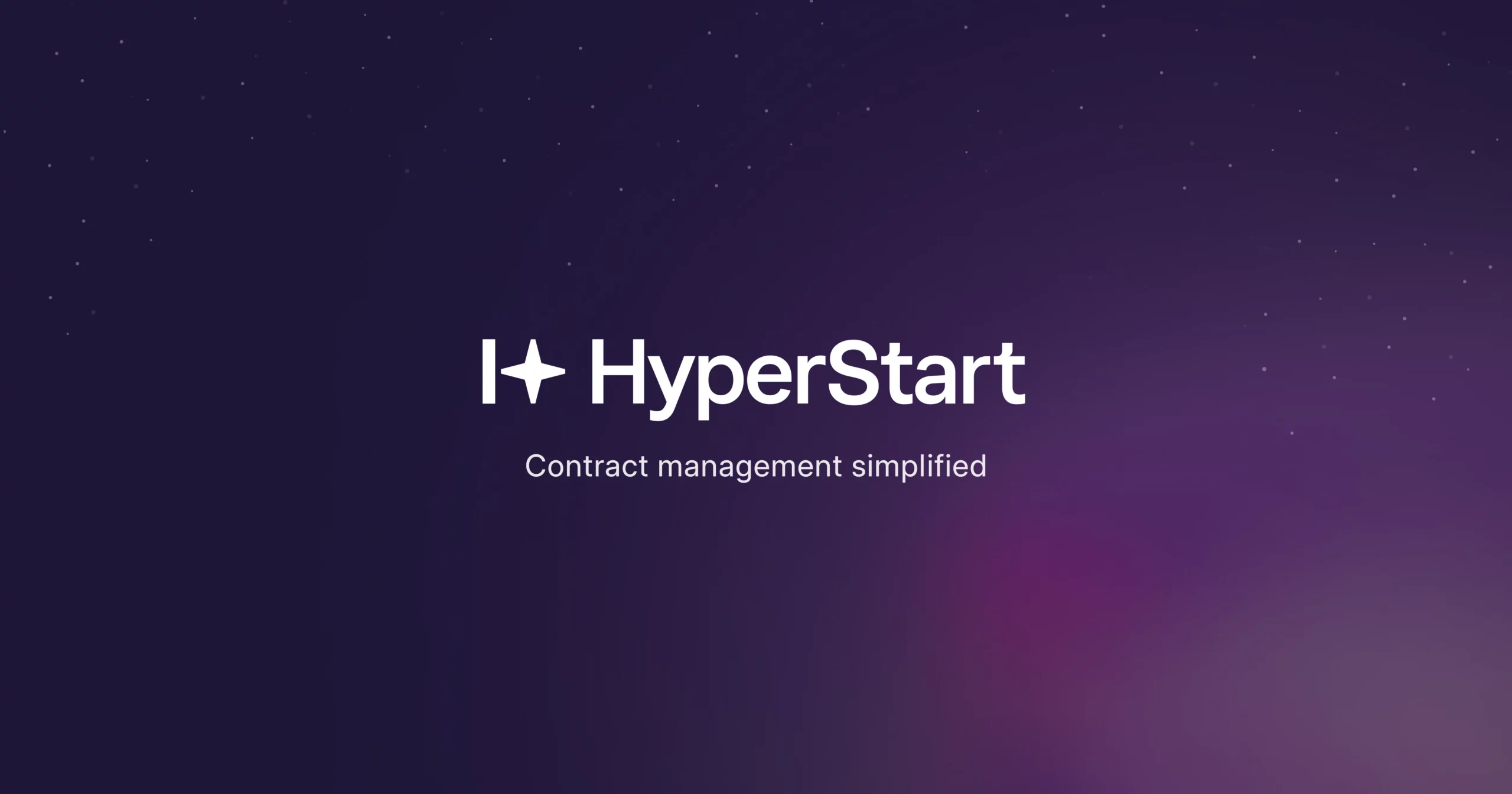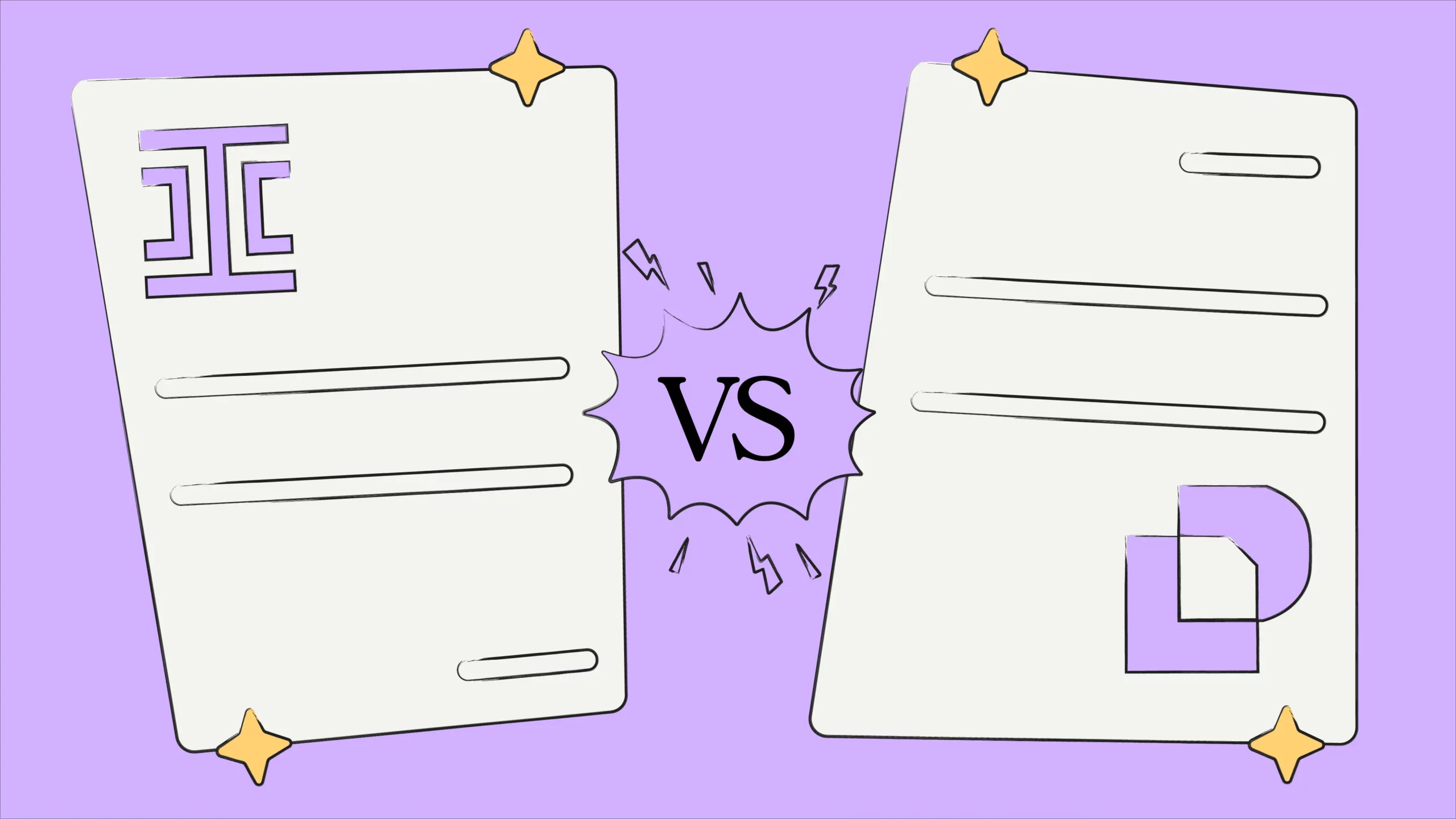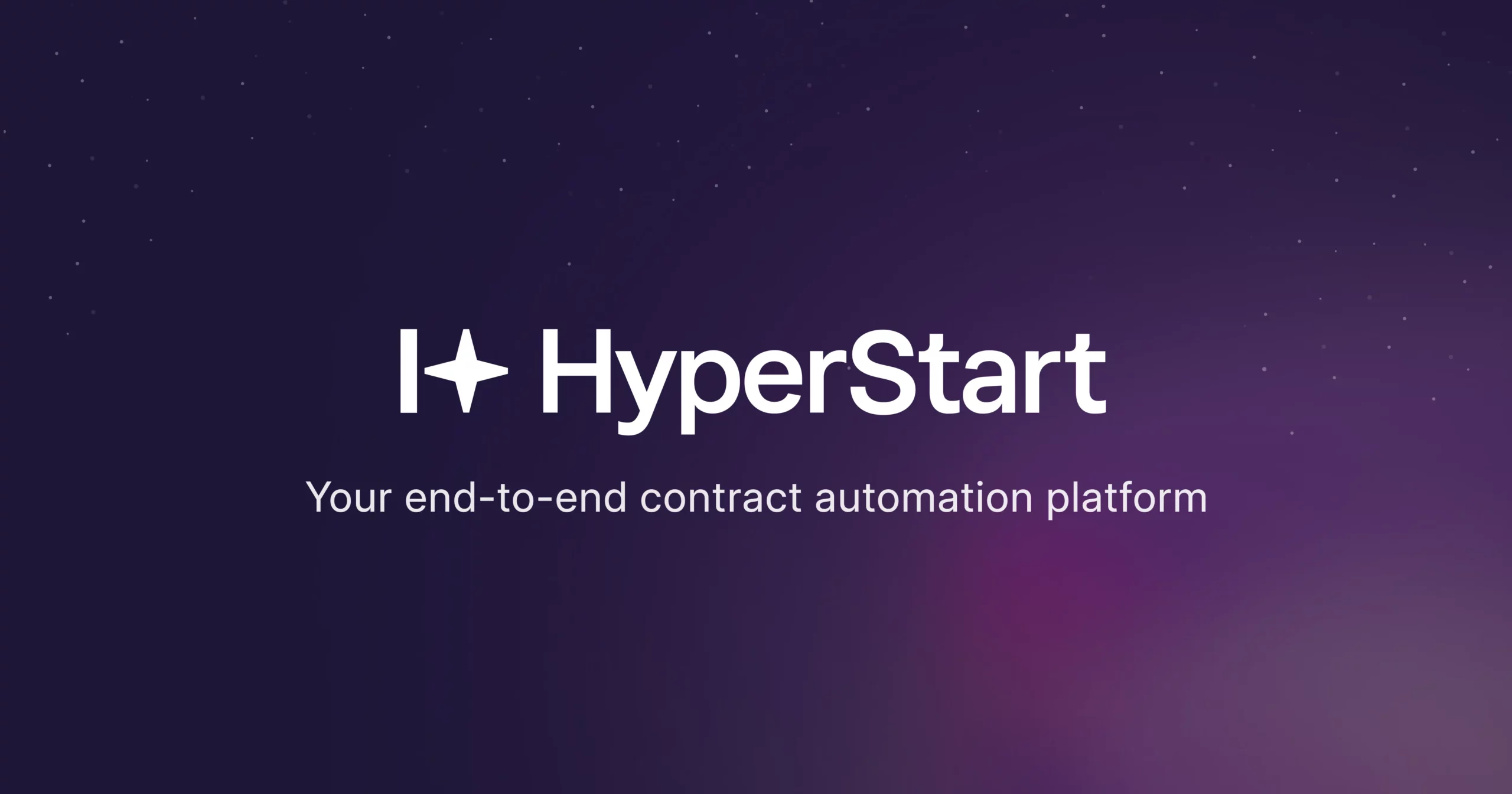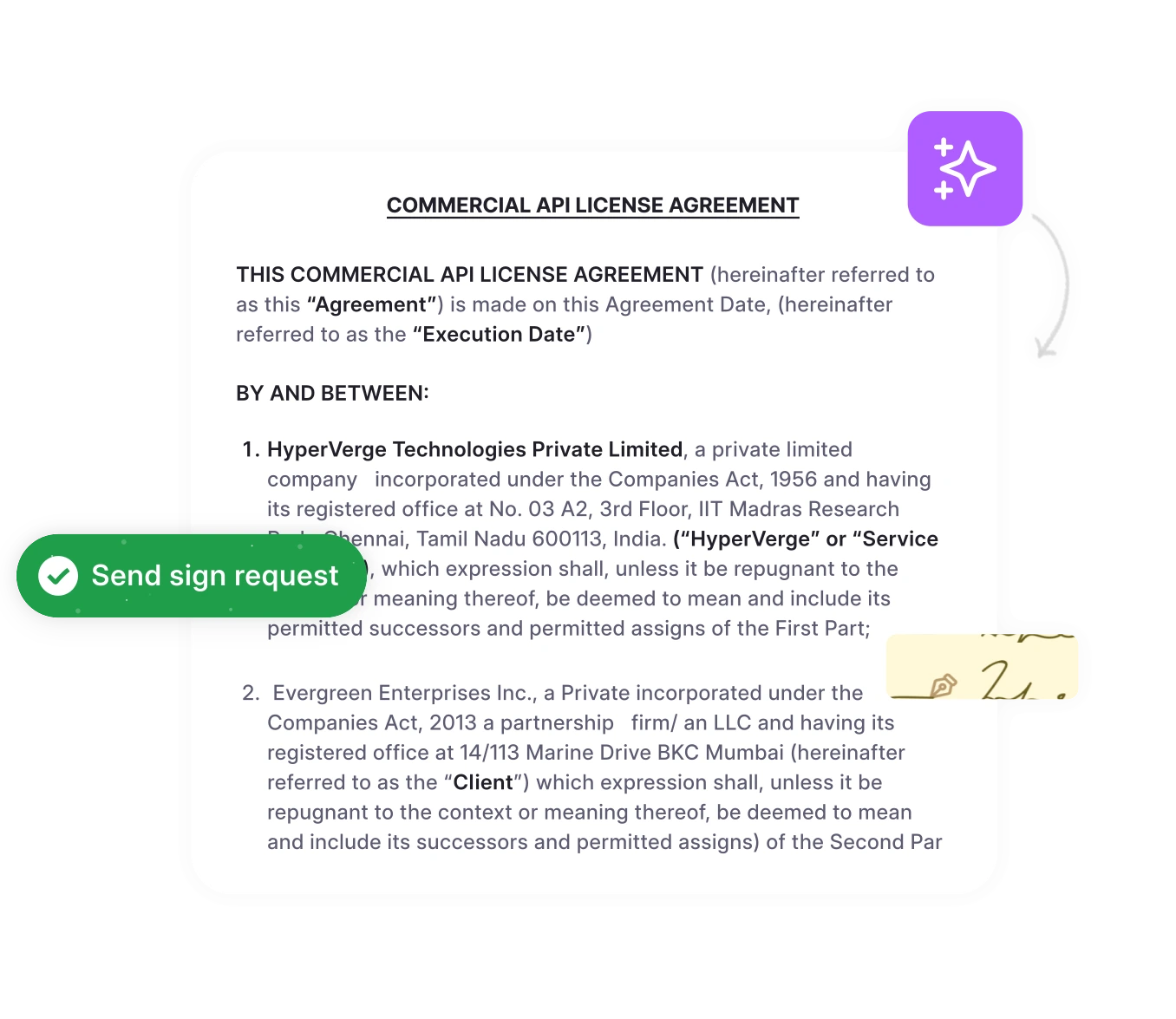You’ve just signed a significant contract after weeks of negotiation. Everyone celebrates, but here’s what most organizations miss: the real work begins now. Post-award contract management is where agreements transform from legal documents into business value. It’s the difference between a contract that delivers on its promises and one that becomes a source of disputes, missed deadlines, and lost opportunities.
Whether you’re managing vendor relationships, tracking compliance obligations, or ensuring deliverables meet expectations, effective post-execution management determines if your contracts become strategic assets or administrative burdens.
This guide walks you through everything you need to master this critical phase. Starting from what it is, its key activities, importance, key challenges, best practices, and the role of CLM platforms.
What is post-award contract management?
Post-award contract management is the systematic oversight and administration of a contract after it has been signed by all parties. This phase begins immediately after contract execution and continues throughout the entire contract lifecycle until completion, renewal, or termination.
Unlike pre-award activities, which focus on vendor selection and negotiation, post-award management ensures that both parties fulfill their contractual obligations through performance monitoring, compliance tracking, and relationship management, thereby maximizing contract value and minimizing risk.
This phase transforms static contract documents into active business processes where organizations either realize their expected benefits or discover that poor oversight has eroded the agreement’s value.
Now that we understand what post-award contract management entails, let’s examine the specific activities that contribute to its success.
What are the key activities in post-award contract management?
Managing contracts effectively after signing requires systematic attention to several interconnected activities. Here are the 6 essential components that drive it successfully:
1. Performance monitoring and compliance tracking
Continuous oversight ensures vendors meet their contractual commitments through KPI tracking, SLA monitoring, and deliverable quality verification. Regular performance reviews help identify issues early and provide opportunities for improvement.
2. Financial administration and payment processing
Proper financial oversight involves invoice validation, payment processing, and budget tracking. This includes monitoring cost overruns, validating change orders, and ensuring financial transactions align with contractual requirements.
3. Contract compliance management
Ongoing compliance monitoring ensures adherence to regulatory requirements and contractual obligations through the tracking of deadlines, maintenance of audit trails, and verification of legal responsibilities.
Almost 70% of total costs related to contract management are incurred during the post-award phase. Effective compliance monitoring during this phase is therefore critical to controlling costs and mitigating financial risks.
4. Risk assessment and mitigation
Proactive risk management identifies potential issues before they become problems by monitoring vendor health, operational risks, and market conditions while maintaining contingency plans.
5. Change management and contract modifications
Managing contract changes requires formal processes for evaluating, approving, and implementing modifications, including scope changes and contract amendments.
6. Relationship management and communication
Maintaining positive vendor relationships through regular communication, performance discussions, and collaborative problem-solving to optimize contract outcomes.
Simplify post-award contract oversight
HyperStart centralizes documents, automates workflows, and gives you real-time insights for more intelligent decisions.
Book a DemoUnderstanding these key activities reveals why post-award management is so crucial for organizational success.
Why is effective post-award contract management critical?
Effective post-award contract management directly impacts organizational success in ways that extend far beyond simple contract compliance. Here are the 4 ways showcasing the importance of post-award contract management.
1. Prevents significant value leakage
Organizations risk losing contract value through missed renewals, untracked price escalations, and unrealized discounts. Systematic management ensures these risks are controlled and helps capture full value from every agreement.
2. Enables better risk management
Active oversight identifies potential problems before they escalate into costly disputes. Monitoring performance, tracking compliance, and maintaining clear communication significantly reduces contract-related risks.
3. Improves vendor relationships and outcomes
Strong post-award management transforms transactional relationships into strategic partnerships through regular performance discussions and collaborative problem-solving, resulting in improved service delivery and enhanced innovation opportunities.
4. Ensures regulatory compliance and audit readiness
Continuous compliance monitoring, proper documentation, and audit trail maintenance ensure organizations remain compliant and can demonstrate adherence during regulatory reviews.
Despite its importance, post-award contract management faces several significant challenges that organizations must address.
What are the key challenges in the post-award phase?
Organizations frequently struggle with post-award contract management due to several persistent challenges. Here is a list of the 5 most common challenges faced by organizations in the post-award phase.
1. Fragmented information and poor visibility
Contracts scattered across multiple systems make it difficult to maintain complete visibility into contract status or access critical information when needed. Teams spend more time searching for documents than managing performance.
Subject matter experts and government officials underscore the need to prioritize post-award management as a critical phase where contract execution and performance happen.
Currently, it often receives less attention and resources than pre-award activities, despite its significant potential ROI in contract performance improvements. Government roundtable discussions recommend increasing staff focus and leadership engagement in post-award processes to improve visibility and outcomes.
2. Manual processes and administrative burden
Traditional management relies on manual tracking through spreadsheets and calendar reminders. These approaches become inadequate as contract volumes grow, leading to missed deadlines and increased administrative overhead.
3. Inadequate performance monitoring
Without systematic monitoring, organizations lack visibility into vendor performance, potentially allowing poor service delivery and compliance violations to go unnoticed.
4. Communication and coordination difficulties
Post-award management requires coordination between legal, procurement, finance, and operations teams. Without clear communication channels, critical updates can be overlooked and decisions delayed.
5. Skills and resource constraints
Many organizations lack dedicated contract management resources or specialized post-award skills, resulting in poor contract oversight and missed opportunities.
Stop post-award blind spots
Eliminate missed milestones, compliance gaps, and value leakage with HyperStart’s intelligent contract tracking.
Book a DemoFortunately, organizations that implement effective post-award management practices realize significant benefits that far outweigh these challenges.
What are the key benefits of post-award contract management?
Organizations that invest in effective post-award contract management see substantial returns across multiple dimensions. The 5 benefits listed below will help you make the right decision.
1. Significant cost savings and value capture
Systematic management prevents revenue leakage and secures hidden value. It helps organizations avoid missed renewals, enforce negotiated terms, and ensure they consistently receive contracted discounts and rebates.
2. Enhanced compliance and reduced risk exposure
Active monitoring ensures ongoing adherence to regulatory requirements and contract terms, reducing compliance violations and potential legal disputes.
3. Improved operational efficiency and productivity
Automated tracking eliminates manual work, enabling teams to focus on strategic activities. Systematic management streamlines processes and accelerates contract handling.
4. Stronger vendor relationships and better outcomes
Regular monitoring and proactive communication foster partnerships rather than transactional relationships, resulting in improved service delivery and increased innovation opportunities.
5. Better visibility and strategic decision-making
Comprehensive contract data provides insights that inform strategic decisions about renewals, expansions, and vendor optimization.
After understanding the significant benefits, it is now time to have a look at the difference between pre-award and post-award contract management.
What is the difference between pre-award and post-award contract management?
While both phases are essential for contract success, pre-award and post-award contract management serve different purposes and require distinct approaches:
| Aspect | Pre-Award Contract Management | post-award Contract Management |
| Focus and Objectives | Focus on vendor selection, negotiation, and contract creation. | Focus on ensuring contracted outcomes are delivered and managing ongoing relationships. |
| Key Activities | Includes market research, proposal evaluation, due diligence, and contract negotiation. | Involves performance monitoring, compliance tracking, payment processing, and change management. |
| Skills Required | Requires procurement expertise, negotiation skills, and legal acumen. | Requires operational oversight, analytical skills, and relationship management abilities. |
| Success Metrics | Measured by cost savings and favorable contract terms secured. | Measured by vendor performance against SLAs, compliance rates, and overall value realization. |
| Duration & Timeline | Ends when the contract is signed. | Continues throughout the contract term and needs sustained attention. |
Understanding how post-award management differs from pre-award activities helps organizations optimize both phases of the contract lifecycle. Now, let’s look at the proven best practices that address common organizational challenges.
What are the best practices for effective post-award contract management?
Successful post-award contract management follows proven 6 practices that address common challenges while maximizing contract value:
1. Establish transparent governance and accountability
Establish formal governance frameworks that define roles, responsibilities, and decision-making authority. Use RACI matrices to clarify task ownership and establish clear escalation paths for issues.
2. Implement systematic monitoring and tracking
Move beyond manual spreadsheets to systematic tracking of milestones, deliverables, and performance metrics. Set up automated alerts and create dashboards for real-time contract visibility.
3. Maintain comprehensive documentation and records
Document all contract-related communications, decisions, changes, and performance data. Proper documentation protects your organization and provides valuable information for future negotiations.
4. Create standardized processes and workflows
Develop consistent processes for performance reviews, change management, issue resolution, and renewal preparation. Standardized workflows ensure consistency and reduce missed steps.
5. Focus on relationship management and communication
Schedule regular performance reviews, maintain open communication with vendors, and approach issues collaboratively. Strong relationships prevent problems and enable faster resolution.
6. Leverage technology for automation and efficiency
Implement contract lifecycle management platforms that automate routine tasks and provide centralized storage with advanced analytics capabilities.
Eliminate post-award surprises
Get real-time alerts on obligations, deadlines, and compliance issues with HyperStart’s AI-powered monitoring.
Book a Demo
Modern technology platforms are transforming how organizations approach post-award contract management by addressing many traditional challenges.
How do CLM platforms transform post-award contract management?
Contract lifecycle management platforms revolutionize post-award management by automating manual processes and providing better visibility.
1. Centralized repository and intelligent organization
CLM platforms offer a single, searchable repository for all contracts, eliminating the need for scattered files and providing instant access. Contract repositories with AI-powered search allow teams to find specific information in seconds.
2. Automated obligation and deadline tracking
AI-powered contract management software automatically extracts key dates and obligations from contracts, providing proactive alerts. Organizations using automated tracking typically prevent $200K+ in annual losses from missed renewals.
3. Streamlined approval workflows and change management
CLM platforms automate approval processes and contract modifications, reducing processing time and maintaining proper audit trails. Organizations often see 80% faster contract processing.
4. Integration with existing business systems
Leading platforms integrate with CRM, ERP, and financial systems, creating connected ecosystems where contract data flows automatically between systems. A modern CLM platform, such as HyperStart, addresses post-award management challenges through intelligent automation. Customers like LeadSquared have seen immediate improvements with AI extracting critical metadata and providing real-time contract visibility.
Elevate post-award contract management with HyperStart
Post-execution contract management turns signed agreements into real business value. This phase determines whether contracts become strategic assets or costly burdens.
Organizations that master it through clear governance, structured processes, and modern technology achieve significant gains, preventing value leakage, stronger vendor relationships, better compliance, and smarter decision-making.
The key is moving beyond manual tracking to proactive, automated oversight with real-time visibility. With HyperStart’s AI-powered platform, businesses streamline post-award management, improve compliance, and unlock competitive advantage.
Ready to transform your contracts? Book a demo to see how HyperStart helps you capture more value while reducing administrative overhead.











